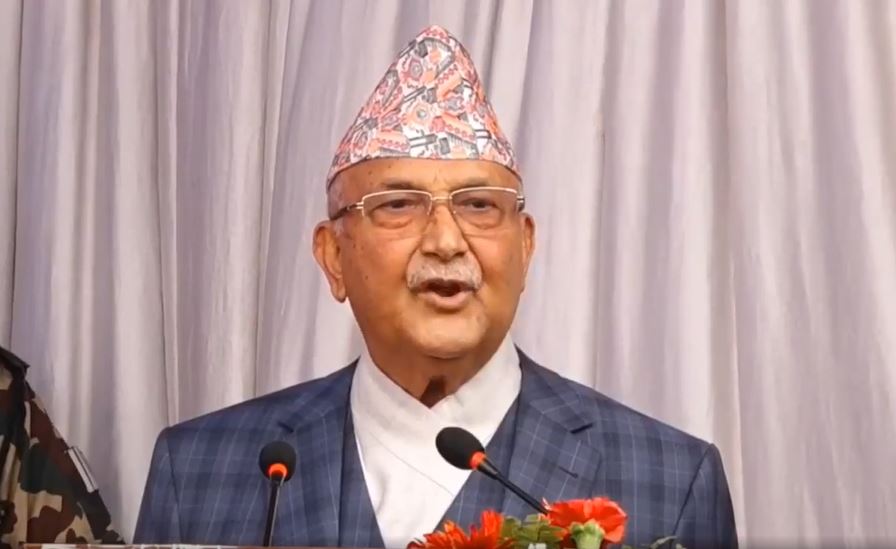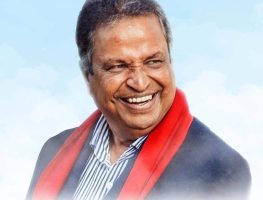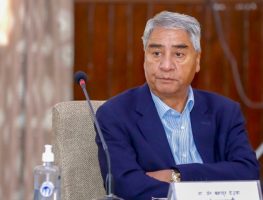
KP Oli
Khadga Prasad Sharma Oli, (KP Sharma Oli), is a prominent Nepali Communist politician and a former Prime Minister of Nepal. Born on 22 February 1952, he held the position of Prime Minister for two non-consecutive terms. His first term extended from 11 October 2015 to 3 August 2016, and he served a second term from 15 February 2018 to 13 July 2021.
Notably, Oli was the first prime minister appointed following the inaugural general election under the country’s new constitution. Oli embarked on his political journey in 1966, opposing the party-less Panchayat system in place at the time. Joining the Communist Party of Nepal in February 1970, he actively participated in subversive politics, leading to his first arrest in 1970.
Following his release from a 14-year imprisonment in 1987 for opposing the autocratic Panchayat system, Oli assumed leadership roles within the Communist Party of Nepal (Unified Marxist–Leninist). In the era of multi-party democracy (1991–2006), Oli played a significant role. After the 1990 People’s Movement, he was elected to the House of Representatives in 1991 and appointed as the chief of the foreign relations department of the CPN (UML) in 1992.
Oli continued to contribute to Nepali politics by serving as the Minister for Home Affairs in Manmohan Adhikari’s minority government in 1994. During the transition period, Oli served as Deputy Prime Minister and Minister for Foreign Affairs in Girija Prasad Koirala’s interim government in 2006. He also led an investigation into the unsolved murder of fellow politician Madan Bhandari during this time.
Although facing defeats in the 2008 Constituent Assembly election and the 2009 CPN (UML) general convention, Oli rebounded by winning the 2013 Constituent Assembly election and subsequently becoming the leader of the CPN-UML parliamentary party in 2014. In July 2014, he was elected as the chairman of CPN (UML) during the party’s ninth general convention.
KP Oli gained attention for adopting a firm stance towards the Indian government during and after the 2015 Nepal blockade.
He pursued closer ties with China as an alternative to Nepal’s traditional reliance on India for trade.
Oli also updated Nepal’s map through constitutional amendments, incorporating disputed territories with India, earning domestic praise and establishing a reputation as a nationalist.
During his tenure, Oli faced criticism for his frequent use of tongue-in-cheek remarks, confrontational attitude towards critics and the media, silence on corruption within his ranks, failure to deliver on economic growth, and deviations from promised budgetary expenditures despite a historic majority in the 2017 legislative election.
First Prime Ministerial term:
Khadga Prasad Sharma Oli secured the position of Prime Minister through a parliamentary vote on 11 October 2015, garnering 338 votes out of 597 members in the Legislature Parliament.
Backed by the Unified Communist Party of Nepal (Maoist), Rastriya Prajatantra Party Nepal, and Madhesi Jana Adhikar Forum, along with 13 other small parties, Oli took the oath of office on 12 October.
His initial term was marked by the economic blockade imposed by India following the promulgation of Nepal’s constitution.
In response, Oli adopted a defiant stance against India’s demands to amend the constitution, opting instead to strengthen ties with China through trade and transit treaties.
However, the withdrawal of support from CPN (Maoist Centre) on 13 July 2016, and the subsequent filing of a no-confidence motion on 14 July 2016, put pressure on Oli’s government.
Despite facing a potential resignation scenario, CPN (UML) decided to address the no-confidence motion in the house, leading to a three-day parliamentary meeting involving concerned parties.
On 24 July 2016, after addressing opposition parties, Oli announced his resignation amid accusations of Indian conspiracy, which the Ministry of External Affairs of India firmly denied.
Second Prime Ministerial term:
Oli returned to the position of Prime Minister for a second term on 15 February 2018, following the 2017 legislative elections, where CPN-UML became the largest party in the House of Representatives.
A motion of confidence passed on 11 March 2018 solidified his position with 208 out of 268 votes in the 275-member House.
The left alliance between CPN-UML and Maoist Centre merged into the Nepal Communist Party (NCP) on 17 May 2018, providing Oli’s coalition government with a two-thirds majority in the House.
In May 2020, Oli’s government unveiled new maps, including disputed territories, in response to Indian activities near the Lipulekh pass.
A constitutional amendment bill swiftly followed, amending the official map and emblem, and was unanimously passed in both houses.
Oli’s decision to recommend the dissolution of the House of Representatives in December 2020 led to political turmoil.
The Supreme Court overturned this decision on 23 February 2021, deeming it unconstitutional.
Oli accepted the verdict and called for a parliamentary meeting on 7 March.
On 7 March 2021, the Supreme Court awarded the Nepal Communist Party to Rishiram Kattel, invalidating Oli’s joint leadership with Pushpa Kamal Dahal.
This decision, coupled with infighting within the ruling NCP, led to a coalition breakdown, making Oli’s government a minority.
On 10 May 2021, Oli failed to obtain a vote of confidence, resulting in his status as a caretaker prime minister.
Third Prime Ministerial term:
Oli was appointed Prime Minister for a third time on 13 May 2021, despite being a minority prime minister, as no opposition parties could form a majority government within the allotted time frame.
After the House of Representatives was dissolved on 22 May 2021, the Oli government became an interim government until fresh elections were held from 12 to 19 November 2021.
The Supreme Court, on 12 July 2021, declared the dissolution of the House of Representatives unlawful and ordered the appointment of Sher Bahadur Deuba as prime minister within 28 hours.
Oli was later appointed as the chairman of CPN (UML) following the party convention in Chitwan.
Election History:
Oli has had a noteworthy electoral history, being elected to the Pratinidhi Sabha from Jhapa in 1991, 1994, 1999, and 2017 on a CPN (UML) ticket. Despite facing setbacks in the 2008 Constituent Assembly election, he rebounded with victories in 2013, 2017, and 2022, consistently representing Jhapa-5 and Jhapa-6 seats.



